| No. | Portrait | Name
Electoral division
(Birth–death) | Election | Term of office | Political party | Monarch |
|---|
| Term start | Term end | Time in office |
|---|
| 1 | 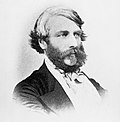 | William Champ
MHA for Launceston
(1808–1892) | 1856 | 1 November
1856 | 26 February
1857 | 117 days | Independent | Victoria
(1837–1901)
Governor:
|
|---|
| 2 |  | Thomas Gregson
MHA for Richmond
(1796–1874) | — | 26 February
1857 | 25 April
1857 | 58 days | Independent |
|---|
| 3 |  | William Weston
MHA for Ringwood
(1804–1888) | — | 25 April
1857 | 12 May
1857 | 17 days | Independent |
|---|
| 4 | 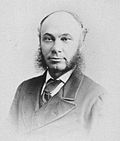 | Francis Smith
MHA for Fingal
(1819–1909) | — | 12 May
1857 | 1 November
1860 | 3 years, 173 days | Independent |
|---|
| (3) |  | William Weston
MLC for Longford
(1804–1888) | — | 1 November
1860 | 2 August
1861 | 274 days | Independent |
|---|
| 5 |  | Thomas Chapman
MHA for Queensborough
(until 1862)
MHA for Campbell Town
(from 1862)
(1815–1884) | 1861 | 2 August
1861 | 20 January
1863 | 1 year, 171 days | Independent |
|---|
| 6 |  | James Whyte
MLC for Pembroke
(1820–1882) | 1862 | 20 January
1863 | 24 November
1866 | 3 years, 308 days | Independent |
|---|
| 7 |  | Sir Richard Dry
MLC for Tamar
(1815–1869) | 1866 | 24 November
1866 | 1 August
1869 (†) | 2 years, 250 days | Independent |
|---|
| 8 |  | James Milne Wilson
MLC for Hobart
(1812–1880) | — | 4 August
1869 | 4 November
1872 | 3 years, 92 days | Independent |
|---|
| 1871 |
| 9 |  | Frederick Innes
MHA for Selby
(1816–1882) | 1872 | 4 November
1872 | 4 August
1873 | 273 days | Independent |
|---|
| 10 |  | Alfred Kennerley
MLC for Hobart
(1810–1897) | — | 4 August
1873 | 20 July
1876 | 2 years, 351 days | Independent |
|---|
| 11 |  | Thomas Reibey
MHA for Westbury
(1821–1912) | — | 20 July
1876 | 9 August
1877 | 1 year, 20 days | Independent |
|---|
| 12 |  | Philip Fysh
MHA for East Hobart
(1835–1919) | 1877 | 9 August
1877 | 5 March
1878 | 208 days | Independent |
|---|
| 13 | 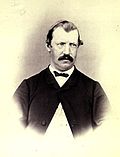 | William Giblin
MHA for Wellington
(1840–1887) | — | 5 March
1878 | 20 December
1878 | 290 days | Independent |
|---|
| 14 |  | William Crowther
MHA for Queensborough
(1817–1885) | — | 20 December
1878 | 30 October
1879 | 314 days | Independent |
|---|
| (13) |  | William Giblin
MHA for Wellington
(1840–1887) | — | 30 October
1879 | 15 August
1884 | 4 years, 290 days | Independent |
|---|
| 1882 |
| 15 |  | Adye Douglas
MLC for South Esk
(1815–1906) | — | 15 August
1884 | 8 March
1886 | 1 year, 205 days | Independent |
|---|
| 16 |  | James Agnew
MLC for Macquarie
(1815–1901) | — | 8 March
1886 | 29 March
1887 | 1 year, 21 days | Independent |
|---|
| 1886 |
| (12) |  | Philip Fysh
MLC for Buckingham
(1835–1919) | — | 29 March
1887 | 27 August
1892 | 5 years, 141 days | Protectionist |
|---|
| 1891 |
| 17 |  | Henry Dobson
MHA for Brighton
(1841–1918) | — | 27 August
1892 | 14 April
1894 | 1 year, 240 days | Free Trade |
|---|
| 1893 |
| 18 |  | Sir Edward Braddon
MHA for West Devon
(1829–1904) | — | 14 April
1894 | 12 October
1899 | 5 years, 181 days | Free Trade |
|---|
| 1897 |
| 19 | 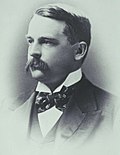 | Sir Elliott Lewis
MHA for Richmond
(1858–1935) | — | 12 October
1899 | 9 April
1903 | 3 years, 179 days | Free Trade |
|---|
| 1900 |
Edward VII
(1901–1910)
Governor:
|
| 20 |  | William Propsting
MHA for North Hobart
(1861–1937) | 1903 | 9 April
1903 | 12 July
1904 | 1 year, 94 days | Protectionist |
|---|
| 21 | 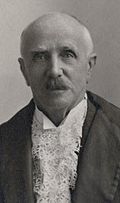 | John Evans
MHA for Kingborough
(until 1909)
MHA for Franklin
(from 1909)
(1855–1943) | — | 12 July
1904 | 19 June
1909 | 4 years, 342 days | Anti-Socialist |
|---|
| 1906 |
| 1909 |
| (19) |  | Sir Elliott Lewis
MHA for Denison
(1858–1935) | — | 19 June
1909 | 20 October
1909 | 123 days | Liberal League |
|---|
| 22 |  | John Earle
MHA for Franklin
(1865–1932) | — | 20 October
1909 | 27 October
1909 | 7 days | Labor |
|---|
| (19) |  | Sir Elliott Lewis
MHA for Denison
(1858–1935) | — | 27 October
1909 | 14 June
1912 | 2 years, 231 days | Liberal League |
|---|
George V
(1910–1936)
Governor:
|
| 1912 |
| 23 |  | Albert Solomon
MHA for Bass
(1876–1914) | — | 14 June
1912 | 6 April
1914 | 1 year, 296 days | Liberal League |
|---|
| 1913 |
| (22) |  | John Earle
MHA for Franklin
(1865–1932) | — | 6 April
1914 | 15 April
1916 | 2 years, 9 days | Labor |
|---|
| 24 |  | Sir Walter Lee
MHA for Wilmot
(1874–1963) | 1916 | 15 April
1916 | 12 August
1922 | 6 years, 119 days | Liberal League
(until 1917) |
|---|
| Nationalist |
| 1919 |
| 1922 |
| 25 |  | John Hayes
MHA for Bass
(1868–1956) | — | 12 August
1922 | 14 August
1923 | 1 year, 2 days | Nationalist |
|---|
| (24) |  | Sir Walter Lee
MHA for Wilmot
(1874–1963) | — | 14 August
1923 | 25 October
1923 | 1 year, 72 days | Nationalist |
|---|
| 26 |  | Joseph Lyons
MHA for Wilmot
(1879–1939) | — | 25 October
1923 | 15 June
1928 | 4 years, 234 days | Labor |
|---|
| 1925 |
| 27 |  | John McPhee
MHA for Denison
(1878–1952) | 1928 | 15 June
1928 | 15 March
1934 | 5 years, 273 days | Nationalist |
|---|
| 1931 |
| (24) |  | Sir Walter Lee
MHA for Wilmot
(1874–1963) | — | 15 March
1934 | 22 June
1934 | 99 days | Nationalist |
|---|
| 28 |  | Albert Ogilvie
MHA for Franklin
(1890–1939) | 1934 | 22 June
1934 | 10 June
1939 (†) | 4 years, 353 days | Labor |
|---|
Edward VIII
(1936)
Governor:
|
George VI
(1936–1952)
Governor:
|
| 1937 |
| 29 | 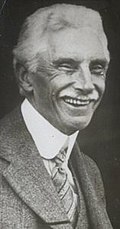 | Edmund Dwyer-Gray
MHA for Denison
(1870–1945) | — | 11 June
1939 | 18 December
1939 | 190 days | Labor |
|---|
| 30 |  | Robert Cosgrove
MHA for Denison
(1884–1969) | — | 18 December
1939 | 18 December
1947 | 8 years, 0 days | Labor |
|---|
| 1941 |
| 1946 |
| 31 |  | Edward Brooker
MHA for Franklin
(1891–1948) | — | 18 December
1947 | 25 February
1948 | 69 days | Labor |
|---|
| (30) |  | Robert Cosgrove
MHA for Denison
(1884–1969) | — | 25 February
1948 | 26 August
1958 | 10 years, 182 days | Labor |
|---|
| 1948 |
| 1950 |
Elizabeth II
(1952–2022)
Governor:
|
| 1955 |
| 1956 |
| 32 |  | Eric Reece
MHA for Braddon
(1909–1999) | — | 26 August
1958 | 26 May
1969 | 10 years, 273 days | Labor |
|---|
| 1959 |
| 1964 |
| 33 |  | Angus Bethune
MHA for Wilmot
(1908–2004) | 1969 | 26 May
1969 | 3 May
1972 | 2 years, 343 days | Liberal |
|---|
| (32) |  | Eric Reece
MHA for Braddon
(1909–1999) | 1972 | 3 May
1972 | 31 March
1975 | 2 years, 332 days | Labor |
|---|
| 34 |  | Bill Neilson
MHA for Franklin
(1925–1989) | — | 31 March
1975 | 1 December
1977 | 2 years, 245 days | Labor |
|---|
| 1976 |
| 35 | 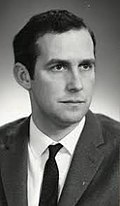 | Doug Lowe
MHA for Franklin
(born 1942) | — | 1 December
1977 | 11 November
1981 | 3 years, 345 days | Labor |
|---|
| 1979 |
| 36 | | Harry Holgate
MHA for Bass
(1933–1997) | | 11 November
1981 | 26 May
1982 | 196 days | Labor |
|---|
| 37 | | Robin Gray
MHA for Wilmot
(until 1984)
MHA for Lyons
(from 1984)
(born 1940) | 1982 | 26 May
1982 | 29 June
1989 | 7 years, 34 days | Liberal |
|---|
| 1986 |
| 38 | | Michael Field
MHA for Braddon
(born 1948) | 1989 | 29 June
1989 | 17 February
1992 | 2 years, 233 days | Labor |
|---|
| 39 | | Ray Groom
MHA for Denison
(born 1944) | 1992 | 17 February
1992 | 18 March
1996 | 4 years, 30 days | Liberal |
|---|
| 1996 |
| 40 | | Tony Rundle
MHA for Braddon
(1939–2025) | — | 18 March
1996 | 14 September
1998 | 2 years, 180 days | Liberal |
|---|
| 41 | | Jim Bacon
MHA for Denison
(1950–2004) | 1998 | 14 September
1998 | 21 March
2004 | 5 years, 189 days | Labor |
|---|
| 2002 |
| 42 | | Paul Lennon
MHA for Franklin
(born 1955) | — | 21 March
2004 | 26 May
2008 | 4 years, 66 days | Labor |
|---|
| 2006 |
| 43 |  | David Bartlett
MHA for Denison
(born 1968) | — | 26 May
2008 | 24 January
2011 | 2 years, 243 days | Labor |
|---|
| 2010 |
| 44 |  | Lara Giddings
MHA for Franklin
(born 1972) | — | 24 January
2011 | 31 March
2014 | 3 years, 66 days | Labor |
|---|
| 45 |  | Will Hodgman
MHA for Franklin
(born 1969) | 2014 | 31 March
2014 | 20 January
2020 | 5 years, 295 days | Liberal |
|---|
| 2018 |
| 46 |  | Peter Gutwein
MHA for Bass
(born 1964) | — | 20 January
2020 | 8 April
2022 | 2 years, 78 days | Liberal |
|---|
| 2021 |
| 47 |  | Jeremy Rockliff
MHA for Braddon
(born 1970) | — | 8 April
2022 | Incumbent | 3 years, 274 days | Liberal |
|---|
| 2024 | Charles III
(2022–present)
Governor:
|
| 2025 |











































